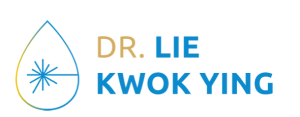Benign Prostatic Hyperplasia (BPH), commonly known as an enlarged prostate, is a prevalent condition among aging men. It leads to lower urinary tract symptoms (LUTS) such as frequent urination, weak stream, hesitancy, and nocturia. While the condition is not cancerous, its symptoms can significantly affect quality of life. Choosing the right enlarged prostate treatment often involves a careful balance between medical and surgical options, and patient counseling plays a crucial role in that decision-making process.
Understanding the Options
Medical therapy is typically the first line of treatment. Alpha-blockers such as tamsulosin work by relaxing the muscles of the prostate and bladder neck, improving urine flow. 5-alpha-reductase inhibitors (e.g., finasteride) help shrink the prostate over time and are particularly effective in men with larger glands. Some patients may also benefit from combination therapy or newer medications like tadalafil, which can address both urinary symptoms and erectile dysfunction.
However, medications may not be suitable for everyone. Some patients experience side effects such as dizziness, fatigue, or sexual dysfunction. Others may not achieve sufficient symptom relief. In such cases, surgical intervention becomes a viable option.
Surgical Alternatives
Minimally invasive procedures have become increasingly popular in recent years. Options such as the UroLift system, Rezūm water vapor therapy, and Holmium Laser Enucleation of the Prostate (HoLEP) offer effective symptom relief with faster recovery and fewer complications than traditional surgery. Transurethral Resection of the Prostate (TURP), while still commonly performed, is now often reserved for more severe cases.
Shared Decision-Making
Effective counseling involves understanding the patient’s lifestyle, health status, prostate size, and personal preferences. A man who prioritizes preserving sexual function may prefer a less invasive approach, while someone with significant bladder obstruction may benefit more from surgery. Explaining the pros and cons of each treatment option helps patients make informed decisions aligned with their goals.
Moreover, setting realistic expectations is essential. Some patients may find that a combination of lifestyle changes and medication suffices, while others may need surgical solutions for long-term relief.
Conclusion
Choosing the right enlarged prostate treatment is not a one-size-fits-all process. Through patient-centered counseling and shared decision-making, healthcare providers can help men find the most appropriate, effective, and sustainable treatment path for managing BPH.
Looking for a trusted Urologist in Singapore with proven expertise and compassionate care? Visit Dr Lie Kwok Ying | Urologist In Singapore | BPH Specialist.
Clinic: Dr Lie Kwok Ying | Urologist In Singapore | BPH Specialist
Name: Dr Lie Kwok Ying
Address: 820 Thomson Rd, #02-01, Singapore 574623
Phone Number: 6553 5066
Schedule:
Monday-Friday: 08:30am – 5:00pm
Saturday: 08:30 am – 12:00 pm
Sunday / PH: CLOSED
Description: Urologist In Singapore With 20 Years Of Experience. Fellowship-trained Senior Consultant Urologist specializing in benign prostatic hyperplasia (BPH), kidney cancer, bladder cancer, and kidney stones. Pioneer in HoLEP (Holmium Laser Enucleation of the Prostate) in Singapore.
Website: https://lkyurology.com/
Email: alvernia.clinic@urology.com.sg





